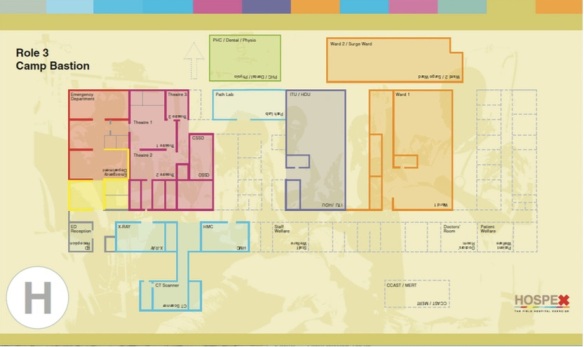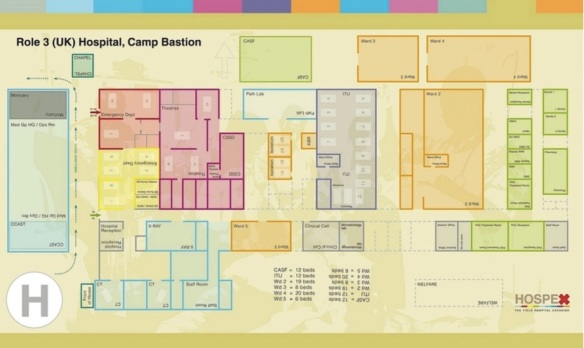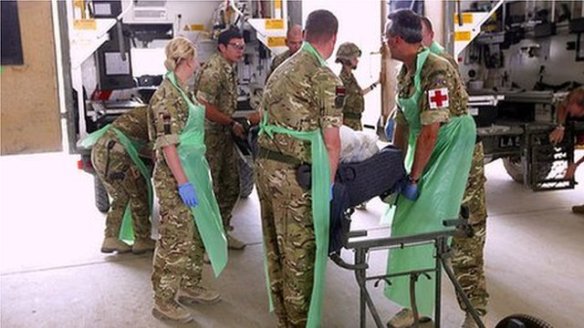In between my other projects, I’m battling my way back to my current research on casualty evacuation. Reading about the military hospital at Camp Bastion in Afghanistan – you can find a bare-bones’ (sic) summary of its development in a series of linked reports from David Vassallo here, here and here (the plans above document its expansion from 2008 to 2010) – I came across the ethnographic work of Mark de Rond:
Cornell University Press are publishing a monograph based on his work later this year – Doctors at war: an ethnographer’s account of life and death in a field hospital – though so far I’ve been unable to track down any more details of what promises to be an essential study of combat casualty care (and Mark’s key interest, ‘teamwork’ – hence his study of the Cambridge Boat Race crew).
In the meantime, you can get a sense of what he calls ‘field work beyond the comfort zone’ from an essay, ‘Soldier, surgeon, photographer, fly’ that appeared in Strategic Organization 10 (3) (2012) 256-262, available open access here:
To treat major trauma effectively requires surgeons and anaesthetists to align their efforts in a context where the margin for error is small and the stakes matters of life and death. Yet even such close cooperation does not rule out rivalry. For leave these surgeons with little or nothing to do work-wise and they may turn on each other instead. Unable to sit still, some begin to interfere in the affairs of others or to compete for work. As one of the surgeons admitted: ‘He is fighting for work. I am fighting for work, each of us hoping the other will be late.’ Sebastian Junger described the troops he embedded himself with as so bored on occasion that ‘they prayed for contact [with the enemy] as farmers pray for rain’ (Hetherington, 2010: 15). Even when work is plentiful, surgeons may compete for the most interesting jobs.
As in Junger’s Korengal Valley, in Camp Bastion’s hospital periods of great intensity follow periods of boredom in which it is however impossible to relax or to put oneself to productive use; surgeons and warriors alike intentionally objectify casualties yet can feel callous for not caring more than they do. It is here that the extremes of busyness and boredom, significance and futility can change rapidly and unpredictably, and shift the balance between altruism and selfishness, pleasure and guilt, the thrill of warfare and cowardice. ‘In this kind of war’, wrote McCullin, ‘you are on a schizophrenic trip. You cannot equate what is going on with anything else in life. . . . None of the real world judgments seem to apply. What’s peace, what’s war, what’s dead, what’s living, what’s right, what’s wrong? You don’t know the answers’ (2002: 100–1).
I’m looking forward to reading Mark’s account alongside the remarkable work of David Cotterrell that I described in ‘Bodies on the line’ here.



